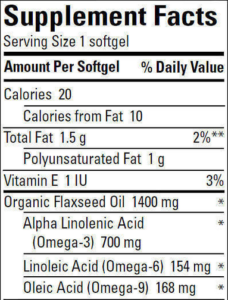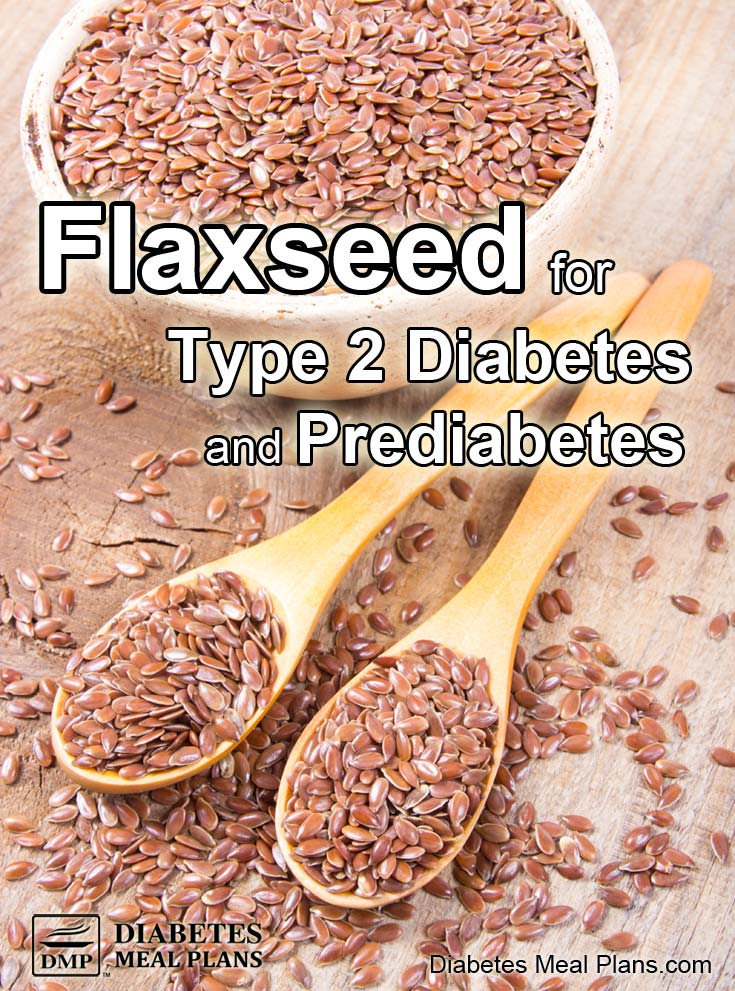Flaxseeds may be a beneficial dietary supplement for managing diabetes or prediabetes. More specifically, in helping reduce insulin resistance, improve cholesterol and decrease belly fat.
Yes, although these tiny seeds may be small in size, research shows the health benefits of flaxseeds are fairly enormous!
Read on to discover more about them.

What is Flaxseed?
Flaxseeds (also known as linseeds) are small edible seeds derived from a flowering plant native to India and the Mediterranean, but it is now cultivated in North America and various other parts of the world as well.
There are three flaxseed products that you may come across in your local grocery market or health food store: whole flaxseeds, ground flax (flaxseed meal), and flaxseed oil.
Flaxseed oil often comes in capsule form and is a great way to consume omega-3 fatty acids, especially if you’re vegetarian and can’t stand the thought of fish oil.
Whole flaxseeds may improve your digestion, but they aren’t ideal since they pass through your gastrointestinal tract largely undigested, though they still do produce a gel-like fiber.
However, if you want to reap the full benefits of flaxseeds then you’ll want to get ground flaxseeds (flaxseed meal) – this is the seeds broken down into a dense powder, which makes the nutritional components much easier to digest and absorb.
Nutrition Facts for Flaxseed
Here’s what you’ll find in 1 tablespoon of ground flaxseed:
- Calories: 37
- Fat: 3 g
- Protein: 1.3 g
- Carbohydrates: 2 g
- Dietary fiber: 1.9 g
- Omega-3s (in the form of alpha-linoleic acid): 2,112 mg
- Magnesium: 10% RDA
- Vitamin B1: 10% RDA
- Manganese: 12% RDA
When it comes to flaxseed oil supplements the amount of omega-3s will vary between brands. However, the following label for generic flaxseed oil shows that one capsule contains 700 mg of omega-3s in the form of alpha linoleic acid (ALA).

It also contains some omega-6 and omega-9 fats, but compared to omega-3s, these are less important, as the typical Western diet is often greatly lacking in omega-3s.
Taking a supplement may be the most convenient way to get your omega-3s, but consuming ground flax gives you the added bonus of more dietary fiber (1.9 g per tablespoon!), as well as the vitamins and minerals you won’t get from a capsule.
How Do Flaxseeds Improve Your Health?
As you just read, flaxseeds are high in fiber. Flax fibers include both soluble and insoluble dietary fibers, the proportion of soluble to insoluble fiber varying between 20:80 and 40:60.
Insoluble fiber helps improve digestion and prevent constipation, while soluble fiber helps in maintaining blood glucose levels and lowering blood cholesterol levels.
In addition, the omega-3 fatty acids found in flaxseeds have anti-inflammatory and antioxidant effects inside the body, working to dampen systemic inflammation and scavenge free radicals that are associated with health conditions such as diabetes and prediabetes.
The ALA in omega-3-rich flaxseed oil also has hypoglycemic (blood sugar lowering) and hypolipidemic (blood cholesterol lowering) effects.
Insulin Resistance and Blood Glucose
There is quite a substantial amount of research showing that flaxseeds can improve insulin resistance. This is great news since insulin resistance can be a major underlying problem faced by most people with type 2 diabetes and prediabetes.
A 2017 study found that mice with artificially induced insulin resistance experienced great improvements when given ALA-rich flaxseed oil.
These insulin-sensitizing effects have also been seen in many human studies.
One study administered daily doses of ALA to obese patients with insulin resistance for 8 weeks. The researchers reported that the patients had decreased insulin levels and lower levels of insulin resistance. The patients also experienced lower levels of inflammation and reductions in triglycerides.
Another study found that flaxseed powder supplementation (10 g/day for 1 month) resulted in reduced fasting blood glucose (-19.7%) and A1C levels (-15.6%) among type 2 diabetics.
A product called flaxseed gum has also been shown to lower fasting blood glucose levels in people with type 2 diabetes, from 154 mg/dl (8.6 mmol/l) to 136 mg/dl (7.6 mmol/l) over a three month period, a reduction of 18 mg/dl (1 mmol/l).
Please pin, tweet or share; then keep on reading.

Cholesterol and Lipids
Research has shown that flaxseeds have a favorable effect on cholesterol and blood lipids in those who have elevated levels.
In one study, people with type 2 diabetes who consumed 5 g of flaxseed gum every day experienced a significant drop in both total cholesterol (from 182 mg/dl to 163 mg/dl) and LDL cholesterol (110 mg/dl to 92 mg/dl).
Other studies have found that supplementing 10 g/day of flaxseed powder produced reductions in total cholesterol (-14.3%), triglycerides (-17.5%), and LDL cholesterol (-21.8%) among people with type 2 diabetes.
Recommended Supplements
PreDiabetes
Flax seeds are also a great supplement for anyone who is trying to treat their prediabetes naturally.
A study on prediabetes found that supplementing with 13 g of ground flaxseed daily for 12 weeks resulted in decreased glucose and insulin levels, as well as improved insulin sensitivity.
In people with metabolic syndrome, supplementing with 25 mL/ day of flaxseed oil was shown to reduce total cholesterol, LDL cholesterol, and triglycerides, along with decreasing blood pressure.
In another study of people with metabolic syndrome people were given 30 g/ day of ground flaxseed alongside active lifestyle advice, central belly fat was reduced by 36% compared to just 13% in those only given active lifestyle advice. The flaxseed group also had a reduction in insulin resistance.
How to Use Flaxseed
Now that you’re familiar with all the potential health benefits of flaxseeds, how can you incorporate them into your life?
Flaxseed oil capsules are perfect for increasing your intake of omega-3 fatty acids, which can help reduce body-wide inflammation.
Another great use for capsules is to decrease hunger.
If you’re finding you’re eating a substantial meal but not getting that feeling of satisfaction, try including 2 flaxseed capsules with at least two of your meals each day. Animal studies have shown that supplementing with ALA increases the satiety (fullness) hormone leptin by around 10%. And we’ve been using this method with clients and it does seem to work.
Other than taking a flaxseed oil capsule, ground flaxseed can be used in baking or mixed into foods you already know and love!
Here are a few ideas for enjoying flaxseeds in your diet:
- Ground flaxseeds pair well with other low carb flours in recipes for muffins, crackers, pie crusts, and breads
- Flax can also be found in store bought products like low carb cereals, or add it to a homemade low carb nut muesli for added fiber
- A combination of ground flaxseed and water can replace eggs in a pinch while baking
- Mix ground flax into Greek yogurt for some added fiber
- Add one to three tablespoons of ground flax to your favorite smoothie and blend well
Flaxseeds have ample health benefits and make a great addition to any diabetic diet!
Please pin, tweet or share this info to help others – thanks!






Leave a Reply